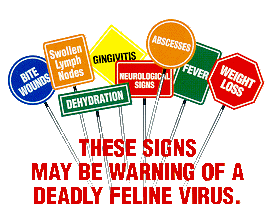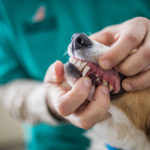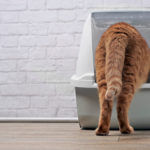Is your cat an outdoor cat? Do they tend to get into fights with other cats?
If the answer to any of these questions is YES, they are at risk of contracting FIV (Feline Immunodeficiency Virus).
FIV is spread through saliva, by bite wounds from one cat to the other. This virus has been around for many years and close to 30% of cats in Australia are thought to be FIV positive. The scary thing is, any cat that ventures outside and has contact with an infected cat, is at risk.
The virus affects the cat’s immune system resulting in an ‘Acquired Immune Deficiency’. This is not the same virus that causes human AIDS and is not transmissible to humans. Feline Aids causes increased susceptibility to infections, increased chance of cancer and can directly affect many of the bodies systems including:
- Eyes
- Kidneys
- Bone marrow
- Gastrointestinal tract
- Central nervous system
The good news is that we have a vaccine to prevent feline AIDS.
Your cat must first have a blood test to determine weather or not he/she has been previously exposed to FIV. If your cat is negative, they can begin the vaccination course.
They will need a course of threes shots, two to four weeks apart, followed by an annual booster.
*Once vaccinated, all future blood tests will read positive, for this reason, vaccinated cats must be positively identified, so a microchip is advised.
COMMONLY ASKED QUESTIONS
How can i help my cat?
By ensuring it has a healthy life style and good quality food, together with regular worming and yearly booster vaccinations. Any infections should be treated promptly. If your cat is FIV positive, keeping your cat indoors is important as it reduces the likelihood of your cat picking up infections as well as reducing the spread of the virus from your cat/s to others.
Are other cats in the household likely to be affected or at risk?
Other cats in your household may already be infected. Generally however, spread between cats through social contact is extremely unlikely so the majority of your cats may well be FIV negative.
Risks to other cats in the household is low unless the cat that is infected is a fighter. The virus does not survive long in the environment so disinfection is not of great value. It is advisable the that positive cat is fed from a separate bowl as saliva can have large amounts of the virus in it.
Will my cat recover?
As far as we know, once a cat is infected with the virus, it will remain infected for the rest of its life, though it is not clear if all infected cats will become ill.
What type of disease does FIV cause?
Cats with FIV may experience an acute phase of illness that begins 4-6 weeks after a bite from an infected cat. These include:
- Gingivitis (inflammation of the gums and mouth)
- Weight loss
- Poor appetite
- Fever
- Conjunctivitis
- Swollen lymph glands
- Vomitting and diarrhoea
- Increased risk of developing cancers
A lot of the above signs are very non specific and many diseases can have a similar clinical picture. It is unclear whether cats that are FIV positive get these syndromes, but there is good information that they have a shorter life expectancy than those who are FIV negative.
Is there any treatment?
Most secondary infections can be effectively treated with antibiotics, but no specific treatment for the virus is available.
If you require any further information or would like to book an appointment, please call us on 9878 3033.






